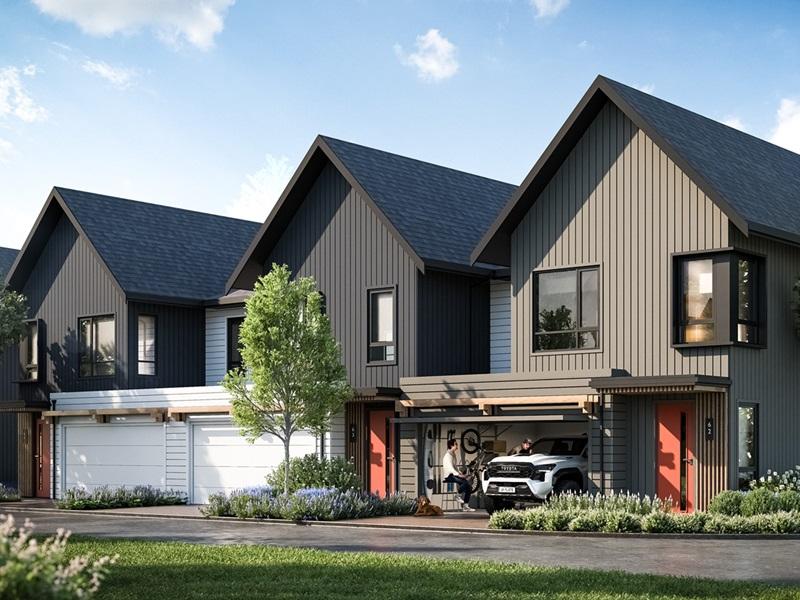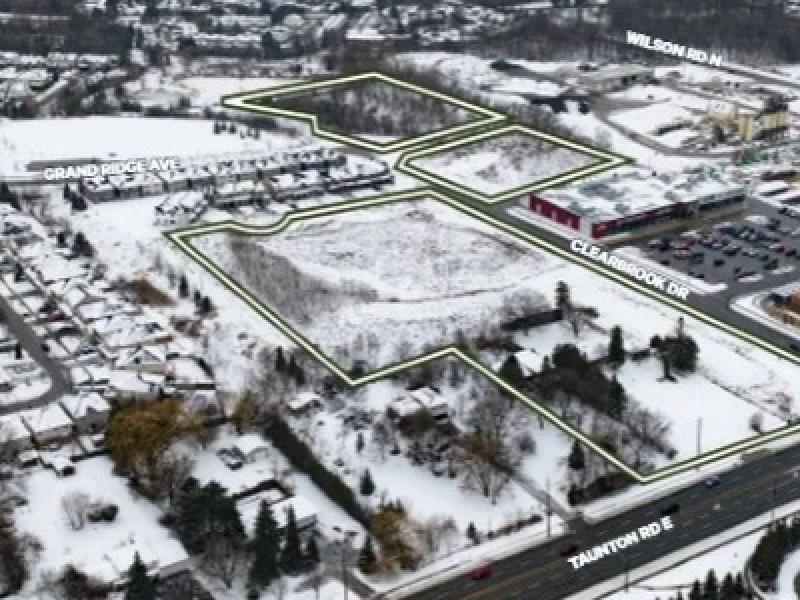
Self-proclaimed “accidental landlords” Steven and Sonia Tran are applying their self-taught knowledge of land ownership and redevelopment to transform two century homes in downtown Hamilton into energy efficient multiplexes to meet the need for missing middle housing.
“Whenever we create units, we have a standard that we would want to live in these units ourselves. Providing quality housing stock to the rental market, not at a premium price,” Sonia Tran said in an interview with RENX Homes.
A 2,500-square-foot, two-storey house on 261 John St. S. and a 2,200-square-foot house on 43 West Ave S. including an attached addition in the back have been designed as multifamily properties, drastically diverging from their origins as single-family homes.
To support the renovations, green building investor Efficiency Capital is providing some of the funding to cut greenhouse gas emissions of each home by 90 per cent compared to the original models.
The Trans’ journey to land ownership
The Trans, a married couple, got their start as developers in 2020. Neither had previous professional experience in real estate, Steven Tran said, and learned about redevelopment through the internet and by talking to others who are already active in the sector.
As rental owners, their experience started in 2015 when they moved out of their condo unit and leased it. The initial plan was to purchase a property every five years, reside in it, then rent it out, repeating this process for 25 years until a nest egg of five properties was assembled, according to Steven Tran.
After learning how to value properties as an investment, the two opted to buy duplexes. The first duplex had the Trans rent out the lower level and live upstairs, while they flipped the second duplex for a profit.
“We realized the more units we were able to convert or add to an existing building, the better the project penciled,” Steven Tran said. This included being able to obtain more financing.
The experiences were a catalyst for the current renovations in Hamilton to convert the two single-family homes into five-unit multiplexes.
Making the conversion
Both homes were in “questionable” condition before the Trans started the renovations in mid-2023, Steven Tran said.
They sit on land that is zoned for multiple dwellings, the Trans said, though permitting was a challenge for 43 West Ave. S., because of a tight lot line.
Renovation for the larger multiplex is complete, while construction on the smaller one is to be completed in approximately a month, Sonia Tran added. The renovations took six to nine months with a team of contractors involved.
261 John St. S. has one studio unit, one bachelor unit, two one-bedroom units and a one-bedroom plus den unit. 43 West Ave. S. will have a one-bedroom unit, a one-bedroom plus den unit and three studio units.
The studio and bachelor units are approximately 400 square feet; one-bedroom units approximately 500 square feet; and the one-bedroom-plus-den units measure approximately 650 square feet. Monthly rent for a bachelor unit will be $1,625; studio and one-bedroom units approximately $1,775; and a basement one-bedroom-plus-den unit at $1,725.
Density was prioritized because the Trans want to introduce housing that sits between condos units and “very beat-up old” apartments, Steven Tran said. “There was nothing right in the middle where you’re able to get quality housing, but not have to pay that premium for a condo. So we saw that there was a gap,” he said.
The tenant profile is young professionals accustomed to a lifestyle of smaller housing and eating outside the home, Sonia Tran explained. This meant parking space was not a priority, so the properties were exempt from parking requirements.
The Trans expect tenants who are less inclined to drive due to their economic situation, the walkability of the neighbourhood and accessibility of transit options.
261 John is within walking distance of the Hamilton GO Centre and both will be close to the city’s planned light rail transit.
It is currently on the rental market and is receiving interest from potential tenants, Steven Tran said.
Creating ‘quality housing that’s sustainable housing’
The Trans also incorporated sustainability into the renovations. “We are trying to create quality housing that’s sustainable housing, and being responsible with our own usage was part of that process,” Steven Tran said.
Both properties run entirely on electricity with no natural gas.
Each unit has its own heating and cooling system based on heat pumps, and metering for electricity. Extensive insulation, heat-trapping windows, energy-efficient appliances and LED lighting were added.
To support the renovations, Efficiency Capital provided both financing and advice, though most of the funds were provided by the Trans.
Steven Tran said it is not ultimately more expensive to build sustainably because of financial incentives, lower operating expenses and separate metering that put the costs on the tenant and not the land owner.
“There’s the marketability of the product as well,” Steven Tran said. “Being able to tell a tenant, ‘Hey look, there’s no gas bill, it’s just (electricity).' So for them, it’s more affordable. That’s one less bill they’ll have to pay.”










